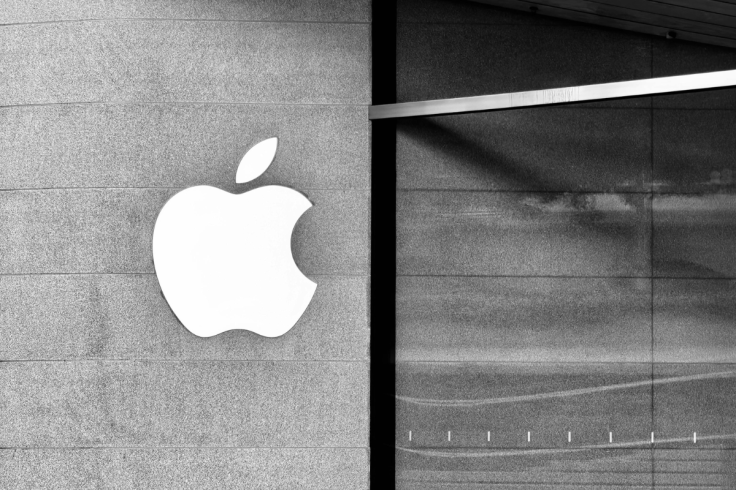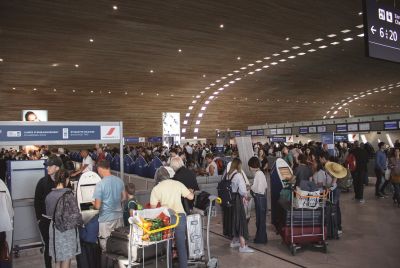Did Trump Just Force Apple To Make US-Made iPhone Parts? Tech Company To Shell Out $100 Billion In Investments
The investment also includes collaboration with Texas Instruments and GlobalWafers for chip production.

Apple's announcement of a £74.6 billion ($100 billion) investment to expand its US manufacturing has sparked debate over whether President Donald Trump's tariff threats drove the decision.
The tech giant's pledge, unveiled alongside Trump on 6 August 2025, aims to bolster domestic supply chains for iPhone components, raising questions about its implications for costs, jobs, and Apple's global operations.
What Prompted Apple's Massive Investment?
Apple's £74.6 billion ($100 billion) commitment follows Trump's America First economic agenda, which includes threats of 100% tariffs on imported semiconductors.
The White House event saw Trump claim, 'There will be no charge for companies building in the United States,' while praising Apple's move as a win for American manufacturing.
Apple CEO Tim Cook, speaking at the Oval Office, said, 'We're leading the creation of an end-to-end silicon supply chain right here in America.'
The investment builds on Apple's earlier £373 billion ($500 billion) pledge in February 2025, bringing its total US commitment to £447.6 billion ($600 billion) over four years.
X posts from @StockMKTNewz reflect market optimism: 'Apple to manufacture chips in Texas, Utah, Arizona, New York—huge win for US jobs!'
🇺🇸 President Trump just said:
— Evan (@StockMKTNewz) August 6, 2025
- IPHONES SOLD IN US SHOULD BE MADE IN US, APPLE $AAPL TO MANUFACTURE CHIPS IN TEXAS, UTAH, ARIZONA, NEW YORK
- ALLOWING APPLE TO GENERATE ITS OWN ELECTRICITY pic.twitter.com/if9MrIxJbO
The move also aligns with Apple's efforts to mitigate tariff-related costs, which have already cost the company billions.
What Will the Investment Cover?
The £74.6 billion ($100 billion) will fund production of over 19 billion chips across 24 factories in 12 states, alongside expanded partnerships with US suppliers like Corning for cover glass and Coherent for Face ID lasers.
Every iPhone and Apple Watch sold globally will use Kentucky-made glass, Cook announced, presenting Trump with a sample during the event.
The investment also includes collaboration with Texas Instruments and GlobalWafers for chip production, with TSMC's Arizona facility contributing.
White House spokesperson Taylor Rogers told CNN, 'This is another win for our manufacturing industry that will help reshore critical components.'
However, full iPhone assembly in the US remains unlikely due to higher labor costs and a lack of skilled technical workforce, with Cook noting, 'iPhones will be assembled elsewhere for a while.'
X posts from @RT_com highlight the scale: 'Apple's $600B total commitment includes a Houston AI facility to dodge Trump's 25% iPhone tariff threat.'
Apple to pledge $100B more to US manufacturing after Trump’s 25% iPhone tariff threat — Bloomberg
— RT (@RT_com) August 6, 2025
Commitment now totals $600B, includes Houston AI facility
Tariffs push Apple to try and move production from Asia, chase subsidies pic.twitter.com/WJTWGOAFMV
The investment aims to incentivise foreign suppliers to adopt US-made parts, reducing reliance on Asian manufacturing hubs.
Will This Impact Costs and Consumers?
While Apple's investment could shield it from punishing tariffs, experts warn of potential cost increases.
Assembling components in the US, where labour costs are higher than in China or India, may raise production expenses.
A Cato Institute survey from August 2024 found most Americans are reluctant to take factory jobs, complicating efforts to build a skilled workforce.
Dennis Woodside, former Motorola CEO, told CNN, 'You have to have a very strong value proposition to the employee,' citing challenges from Motorola's 2013 US smartphone manufacturing attempt.
Analyst Ted Mortonson of Baird remains optimistic, stating, 'Tim Cook is a supply chain genius and likely anticipated Trump's moves.' However, higher costs could lead to pricier iPhones, with estimates suggesting a 10-15% price hike if tariffs fully pass to consumers.
Apple's stock rose 2% on 6 August 2025, reflecting investor confidence, but the long-term impact on pricing and global competitiveness remains uncertain.
The investment may create thousands of jobs, yet the skilled workforce shortage could limit scalability, potentially affecting Apple's ability to meet global demand.
© Copyright IBTimes 2025. All rights reserved.





















